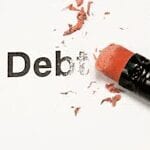Bill Collectors
You may have missed one or more payments on an account such as a credit card, personal loan, student loan, or a line of credit. Consequently, you will likely be receiving collection calls. But who are these people who are calling you?
Most creditors—particularly large creditors—will have their employees call you if your account is less than six months overdue. Many big creditors operate massive call centres, employing hundreds of collectors, calling people who have unpaid accounts. If your account has not been paid for over six months then there is a good chance that your account has been forwarded by your creditor to a collection agency. Under these circumstances, the collection agency is working on a commission or contingency basis. This means that the collection agency does earn a penny in fees unless it recovers monies from you. This might help explain why collectors at collection agencies are often aggressive.
There is also a chance that at some point your original creditor might sell your account to another firm and this firm steps into the shoes of your original creditor. There are two distinct categories of debt buyers. There are traditional collection agencies whose primary source of revenue is collecting unpaid accounts on behalf of others. The second category of debt purchasers are dedicated debt buyers. A dedicated debt buyer is a firm that might employ its own in-house collectors or it may forward its inventory of unpaid accounts to collection agencies.
Contact Rumanek & Company Ltd. for more information on bankruptcy and debt solutions. Or please fill out the free bankruptcy evaluation form. To learn more please visit our YouTube Channel. Rumanek & Company have been helping individuals and families overcome debt for more than 25 years.


 Categories of Debt
Categories of Debt Not all debt is created equal and we see this when a Canadian contacts a licensed insolvency trustee to explore eliminating his debt by way of filing for personal bankruptcy or making a consumer proposal to his creditors. In fact, depending on the type of debt that a consumer has it is possible that only some of his debts might be eliminated when he files for personal bankruptcy or makes a consumer proposal to his creditors
Not all debt is created equal and we see this when a Canadian contacts a licensed insolvency trustee to explore eliminating his debt by way of filing for personal bankruptcy or making a consumer proposal to his creditors. In fact, depending on the type of debt that a consumer has it is possible that only some of his debts might be eliminated when he files for personal bankruptcy or makes a consumer proposal to his creditors